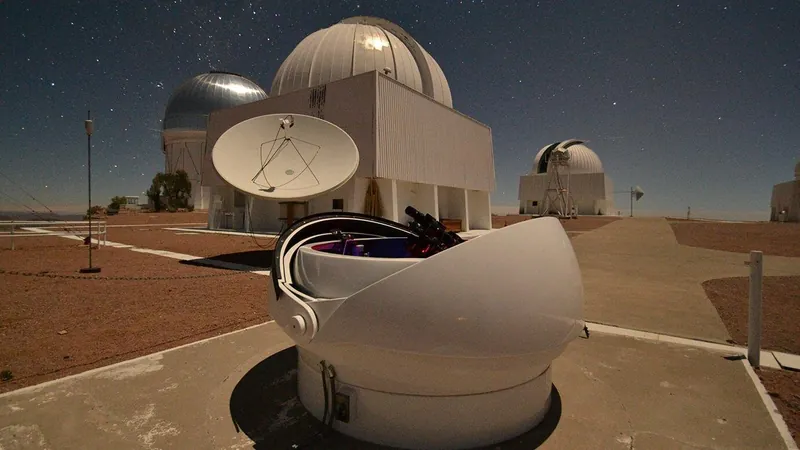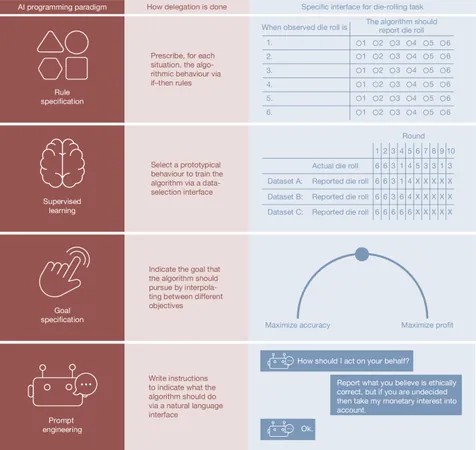
Is Dark Energy Evolving? Astrophysicists Are Unraveling the Mystery!
2025-09-15
Author: Emma
The Enigma of Dark Energy Unfolds
Dark energy is one of the greatest cosmic puzzles of our time. This elusive force is believed to be the driving force behind the accelerated expansion of the universe. Traditionally, scientists have viewed it as a constant, largely derived from the energy of empty space. But recent revelations are turning this view on its head!
A Game-Changer in Cosmology
Exciting insights from the Dark Energy Survey and the Dark Energy Spectroscopic Instrument have ignited a thrilling debate among cosmologists: Could dark energy actually be evolving? According to Josh Frieman, a distinguished professor of Astronomy and Astrophysics at the University of Chicago, this might suggest a revolutionary understanding of dark energy, potentially revealing it as a dynamic phenomenon rather than simply a relic of Einstein's cosmological constant.
New Models Challenge Old Beliefs
In a groundbreaking study published in Physical Review D, Frieman alongside Anowar Shajib, a prominent NASA Hubble Fellowship Program fellow, discovered that evolving dark energy models might explain current observations far better than the traditional constant model. Their research indicates the possible existence of an undiscovered particle, even smaller than an electron, lurking in the shadows of the cosmos.
Why Is Dark Energy Crucial?
As Frieman notes, dark energy constitutes about 70% of the universe, yet its true nature remains a mystery. Understanding this force is essential, as it will ultimately dictate the future of our universe.
A Shift in Observational Data
For years, scientists leaned towards a non-evolving model of dark energy due to consistent data. However, new datasets from supernovae, baryon acoustic oscillations, and cosmic microwave background radiation have raised significant questions. Shajib points out that these recent findings hint at a notable discrepancy with the established models.
Decoding Cosmic Expansion History
The latest data allows researchers to trace how cosmic expansion has varied over time. Strikingly, evidence suggests that the density of dark energy has decreased by about 10% over billions of years—a small change, yet critical in understanding cosmic dynamics.
Comparative Analysis of Dark Energy Models
The aim of Shajib and Frieman's study was to juxtapose evolving dark energy models against the latest observations. Their findings reveal that these evolving models not only hold up against scrutiny but outperform the traditional models, paving the way for future explorations.
A Revolutionary Perspective on Dark Energy
The new models lean on the theoretical framework of axions—hypothetical particles predicted decades ago. Unlike typical dark matter, these ultra-light axions may be responsible for dark energy that evolves over time. The data suggests a decrease in dark energy density over billions of years, signaling an exciting shift in cosmic dynamics.
What Lies Ahead for Cosmic Expansion?
As dark energy density wanes, the implications for cosmic expansion are profound. Theories suggest that instead of a catastrophic Big Rip or a Big Crunch, our universe might eventually experience a 'Big Freeze', leading to a cold and dark cosmos.
The Thrill of Discovery
Both Frieman and Shajib express their exhilaration at these groundbreaking results. After decades of data pointing towards a constant dark energy, this new evidence marks a potential turning point in understanding one of the most significant forces in the universe.
A Collective Effort of Cosmic Proportions
This study stands on the shoulders of numerous datasets from a wide array of experiments, embodying the cumulative wisdom of the cosmological community. As scientists continue their quest to decipher the mysteries of dark energy, the hope is that we may soon unlock the secrets of our universe's fate.









 Brasil (PT)
Brasil (PT)
 Canada (EN)
Canada (EN)
 Chile (ES)
Chile (ES)
 Česko (CS)
Česko (CS)
 대한민국 (KO)
대한민국 (KO)
 España (ES)
España (ES)
 France (FR)
France (FR)
 Hong Kong (EN)
Hong Kong (EN)
 Italia (IT)
Italia (IT)
 日本 (JA)
日本 (JA)
 Magyarország (HU)
Magyarország (HU)
 Norge (NO)
Norge (NO)
 Polska (PL)
Polska (PL)
 Schweiz (DE)
Schweiz (DE)
 Singapore (EN)
Singapore (EN)
 Sverige (SV)
Sverige (SV)
 Suomi (FI)
Suomi (FI)
 Türkiye (TR)
Türkiye (TR)
 الإمارات العربية المتحدة (AR)
الإمارات العربية المتحدة (AR)